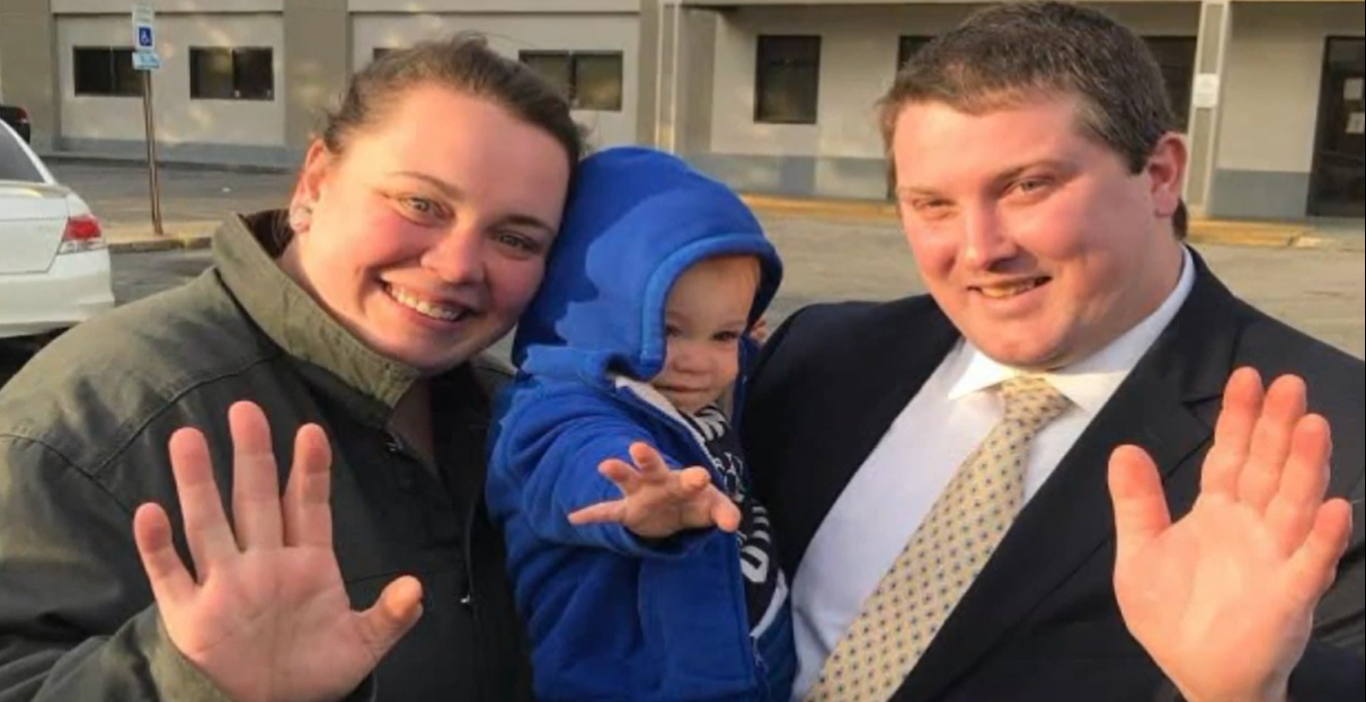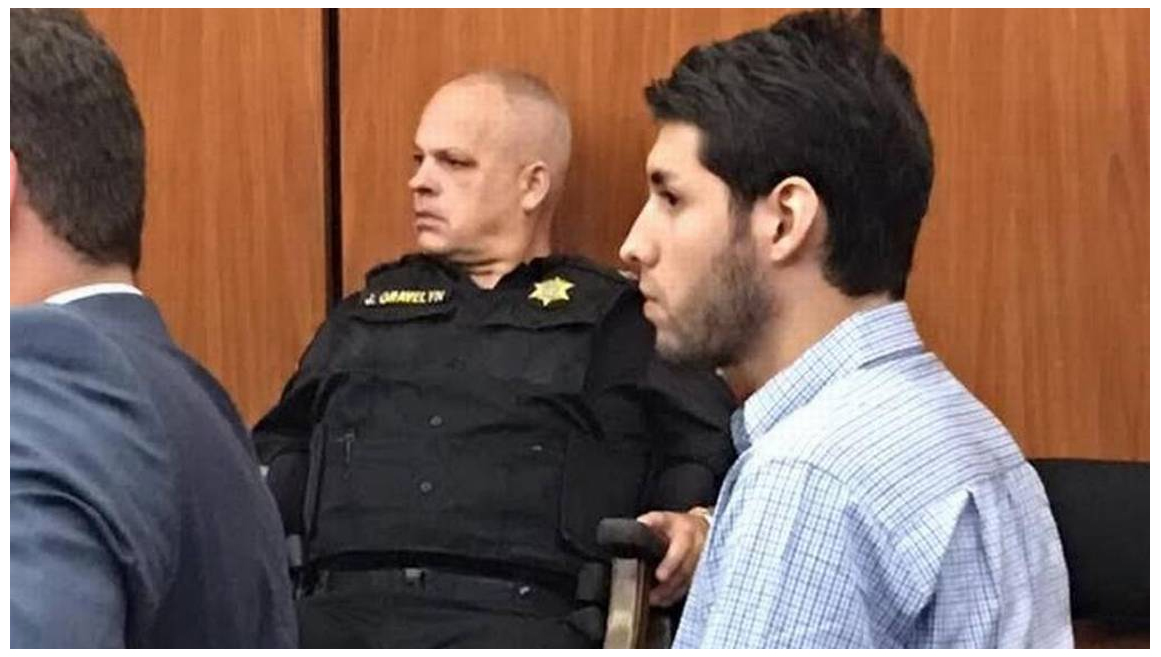GOOSE CREEK, S.C. (WCIV) — It’s been nearly three years since Goose Creek Police found two men shot to death and buried behind a home.
The discovery shocked the Lowcountry, but the case will never go to trial.
It was officially closed when James Edward Loftis, the man charged with the murders, died on Dec. 2.
Berkeley County Coroner Bill Salisbury ruled his death a suicide.
The news was a shock for his criminal defense team, attorneys Stephen Harris and Ryan Schwartz.
Even in death, they stand by their client and maintain he acted in self-defense. They are confident the truth would have come out in trial and on Thursday, divulged the details that would have come out if it had made it in front of a jury.
“He had remorse from day one, he didn’t want to do this,” said Harris. “He called his wife and told her what happened. His wife called the police.”
On March 5, 2016, officials were called to the home on South Pandora Drive. In the backyard, they discovered the remains of two men who were dismembered, burned, and buried in a shallow grave.
Loftis immediately took responsibility and admitted to shooting and killing Guma Oz Dubar, 46, and James Cody Newland, 32. Loftis told police Dubar picked him up in a taxi cab from Charleston strip club Stilettos that night, Newland accompanied Dubar for the trip. When they arrived at his home, Loftis said they robbed him.
“(They) targeted him and drove him home, waited for the opportunity for him to pass out and were kicking in the door and he woke up,” Schwartz said.
Harris and Schwartz said Loftis shot and killed the men at the entrance inside his home. A police report stated one of the investigators reported no signs of forced entry, but both attorneys said pictures taken of the front door during their own investigation prove otherwise.
“Someone had kicked that door to the point where, the frame itself was broken,” Harris said. “Inside the cracks of the door was blood from the victims. Therefore, if that door was intact when (Loftis) opened that door, there’s no way to put blood into cracks.”
Harris said the photos also show a dusty footprint on the front of the door, but the footprint was a size 12, much larger than Loftis’ foot size. He feels this was a key piece of evidence largely ignored, which he uncovered during cross-examination at the preliminary hearing two years ago.
“There was one picture taken of that door frame and of the striker plate and that was taken the next day by a person that was just an officer that was just there and that picture was later destroyed,” said Harris. “I said ‘Did you see signs of forced entry?’ and he said ‘No’ and so I said ‘Did you look at the door?’ and he said ‘No’. They (police) went on from the beginning that this was him letting them in the door, so they didn’t look at the door.”
“It was an unassuming investigation, they had tunnel vision,” Schwartz said. “They had burned bodies in the backyard, they were more interested in that.”
It’s unclear why Loftis opened the door, but Harris said it doesn’t matter if he invited them inside or if the door was forced open, if Loftis felt a threat inside his home, it’s a legit Castle Doctrine defense.
“Just because you open a door for somebody while they’re kicking it in doesn’t mean you’re inviting them in your house.”
The most compelling and puzzling piece of evidence they don’t deny—the burning and dismembering of the bodies afterwards.
“The desecration of the bodies, it is what it is, we were willing to face that,” Schwartz said.
In his statement to police, Loftis said he freaked out, panicked, and tried to hide the evidence in order to protect his family. Disposing of human remains in such a way might not make sense to most people, but Harris said it shouldn’t overshadow what took place before, adding a premeditated motive doesn’t make sense either.
“Nobody knows how they’re going to react after they’ve just shot two people,” Harris said. “To tell me somebody that’s 39 with a good job they’ve had for 20 years and a family, all of a sudden wakes up when his life leaves town and says ‘You know what, today I’m going to go out and kill two people’, that doesn’t make sense.”
Since all three-people involved are now deceased, no one will ever know what actually happened that night, but they have their theories and believe it all began at the strip club Loftis visited that night.
“He was set up by one of the dancers,” said Schwartz. “I can’t prove that but we have evidence we believe leads to that (conclusion) that they were in cahoots with these two guys. They picked out a guy who was single, he was there by himself, he didn’t have friends with him.”
It’s unclear how Loftis connected with Dubar, cellphone records do not show correspondence between the two or that Loftis dialed any cab company from his cellphone.
“This wasn’t a legal cab, this wasn’t a cab where you call and they show up, this is a cab that basically takes people to and from strip clubs,” Harris said. “The guy was out on bond for attempted murder and he had this cab that he would drive and pick up people.”
Dubar was facing charges for an attempted murder on January 13, 2015. Court records classify the case as dismissed by reason of defendant’s death.
Harris said a handwritten letter Loftis received in jail supports their belief Loftis was likely targeted.
“She was a dancer who we believe was the one that, if it happened, put something in his drink,” said Harris. “She was the dancer that night. She also happened to be the girlfriend of the driver that took Eddie home. The letter [it was an apology], it says she wants to right the wrong she did.”
The letter did not include any specific details about her level of involvement, but did state she was in rehab and going through a 12-step program. She signed her name with a smiley face.
The news of Loftis’ suicide came as a shock to both. Schwartz said he talked to him four days before his death, he seemed worried but not in any state of distress.
“There was a civil lawsuit against him, a wrongful death lawsuit that the insurance company denied,” Schwartz said. “He called me, he was very worried about the fact that they had denied him coverage, he was worried that his family was going to get sued.”
“I think he sacrificed himself because he cared that much about his family,” Harris said. “It’s some of the worst days that I’ve ever had and not just because I was sad for him and his family but because we were going to win this, we were going to exonerate him.”
Loftis’ family did not want to be interviewed, but Harris and Schwartz said they felt compelled to release the case information and want people to know Loftis was a good man, a kind man, and completely devoted to his family.
Whichever way the case would have turned out, the lives of three families were forever changed that night








